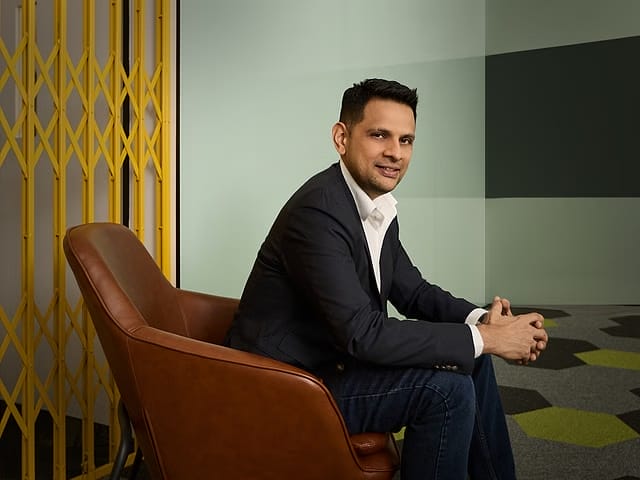by Lyn Chan

Photo: Clement Goh
“It’s a culture; you’ve got to make it part of how you operate,” stresses PropertyGuru chief executive officer Hari Krishnan emphasising the imperative of integrating DEI seamlessly into the organisation. He maintains that DEI is not static, but a dynamic ethos requiring perpetual growth and learning. He contends this is essential to stay attuned to the transformative shifts in society.
Joining the proptech company eight years ago as CEO, he tasked himself to steer the company towards continued success and foster an inclusive environment. His belief in the significance of DEI extends beyond its perceived correlation with economic output.
“As a leader, I feel that there are some decisions that are right and have nothing to do with economics — our DEI initiatives definitely fall into that space,” the 45-year-old muses.
Ongoing DEI initiatives
He dismantles the possibility that PropertyGuru’s involvement in DEI is a response to current trends, citing the company’s longstanding commitment to fostering a diverse and welcoming workplace. Well before people talked about DEI, Krishnan tells me that PropertyGuru had already been leading the charge in creating an inclusive environment. Krishnan reflects on his own experiences as an immigrant in Silicon Valley, recognising the significance of equity and fairness early in his career.
At his first job as a product manager and customer support engineer with Cisco Systems, he vividly remembers how he was treated with respect for the quality of his work, professional contributions, attitude, and ethics. At no point did it matter “where I came from or what I looked like”. Krishnan didn’t fully grasp the essence of those thoughts and emotions at the time and only knew that he felt valued, and a tremendous loyalty to the business, and wanted to play a role in its growth.
His memories of that five-year stint have lingered, serving as Krishnan’s north star in his evolution towards leadership. “I definitely felt if I could create the right circumstances, I could get the very best young employees to come and work for us — they’d become the nucleus around which you build whatever organisation you’re building.”


With 65 per cent of PropertyGuru’s workforce being female and 31 nationalities onboard, he highlights the importance of equity over equality. “Equity is very different from equality,” he points out, drawing a distinction between treating everyone the same and creating circumstances where everyone can thrive. So, it’s unsurprising that he rejects the notion of “diversity candidates”.
Instead, Krishnan advocates for an environment where individuals can flourish, free from the burden of being labelled.
He feels diversity should be an organic outcome of a thorough and fair recruitment process, extending to the highest levels of the organisation. That PropertyGuru’s leadership team and board consist of a significant percentage of women is a milestone he is proud of.
“It’s not just about diversity for diversity’s sake.” He asserts that the range of perspectives and experiences stemming from diversity has equipped PropertyGuru to navigate challenges and foster innovation in the face of fluidity.
The role of affirmative action in DEI
While Krishnan clearly embraces DEI, he hesitates to dole out affirmative action initiatives at PropertyGuru. Frequently used as a tool to promote equal opportunity at the workplace or in education, affirmative action, he feels, “is sometimes a necessary tactic, although short-term, to help change your processes and talent attraction”.
But he cautions against the blunt instrument of quota systems, expressing reservations about reducing individuals to mere diversity checkboxes.


Photo: Clement Goh
Rather than enforcing arbitrary quotas, affirmative action should involve a comprehensive audit of processes and behaviours to rectify systemic issues. “When affirmative action is done well, it relooks at your policies and helps you understand why you have ended up where you’ve ended up.”
For instance, he suggests that if a company lacks diversity, it is worthwhile to scrutinise why individuals of different genders, races, or backgrounds might not be joining the company.
Even without DEI issues, re-evaluating the company’s processes is a constant at PropertyGuru. It is accomplished by listening to employees who are given the chance to voice their views. To create a safe cocoon, they can freely speak their minds, anonymously or named, through various forums, like email and live question-and-answer sessions.




In his estimation, content and engaged employees are achievable only with diverse voices, a sense of inclusion and a sense of equity. Because he believes, “DEI and our culture are not just owned by, say, the chief people officer. Everyone in PropertyGuru needs to own it. That’s how you evolve the company.”


